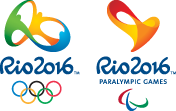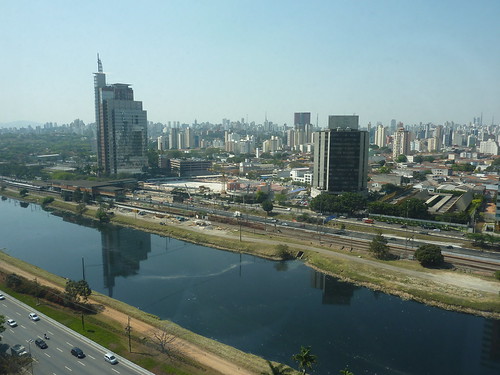
In about a year and a half from now, Rio de Janeiro, Brazil will host the 2016 Summer Olympic Games.
This past summer, Brazil hosted the FIFA World Cup. Leading up to the event there was no small degree of controversy, fueled in large part by popular protests against the status quo‘s apparent focus on its international image rather than on the Brazilian people’s more urgent needs (Moh 2014). The outcry particularly focused on the lack of development/infrastructure in such sectors as education, public transportation, and medical care.
In a May 2013 interview with the Bloomberg News Service, JPMorgan’s Latin American Chief Investment Analyst Philip Guarco spoke with journalist Trish Regan about Brazil’s capabilities and preparations for both events in question, as neither had yet occurred (nor had the popular protests yet begun). He noted,
“[Brazil has] actually doubled the amount on infrastructure that they’ve made over the last 10 years, from about two percent of GDP to four percent. But I think there has to be more partnership with the private sector. And unfortunately there’s been a number of moves recently by the government which I think discouraged the private sector from investing more in infrastructure.”
These doubts were widely echoed throughout international media in the lead-up to the 2014 World Cup. Although the Brazilian national team suffered a humiliating 7-1 defeat by Germany in the semi-finals and then a 0-3 loss to the Netherlands in the run-off for third place (Pearson/FIFA 2014), the logistical/infrastructural issues predicted by many critics seemed to have been not only averted, but quite smoothly maneuvered. Score one for the Brazilians there.
However, as life gradually returned to normal after the event, the Brazilian economy began to register the reverberations from the weeks of lost productivity in any sector unrelated to the Cup itself, as essentially the whole nation was either directly or indirectly engaged in the mega event:
“While the month-long tournament drew a million foreign tourists to Brazil–far exceeding official expectations–economists say its impact on other sectors of the economy was decidedly negative. Some World Cup host cities declared municipal holidays on days when matches were played in local stadiums, while untold legions of workers played hooky to watch the Brazilian national team’s seven games.” (The Wall Street Journal, 18 July 2014)
Many speculators (Guarco 2013) currently agree that the high hopes that were held for Brazil as a world-class economy are now tempered with a strong dose of scepticism based on internal limitations and the often fraught relationship between the public and private sectors in large-scale projects. The recent scandal involving the widespread corruption of state-run oil giant Petrobras is one glaring example (Horch 2015).
Will the months leading up to the 2016 Olympics (August 5-21, 2016) unfold as another politically turbulent – followed by another economically stagnant – period? Or will the Games only help to solidify Brazil’s still – ostensibly – burgeoning status as the darling of the BRICS nations (“Brazil, Russia, India, China, South Africa”), despite the risks and challenges? Whatever the result, Brazil’s current position on the world stage is as prominent as it has ever been.
For more information about what’s in store for the fascinating nation and culture of Brazil, scroll down after the references for some recommended reading, all available at the UIUC Library.
Fore more information on Latin American and Caribbean Area Studies, please contact our Subject Specialist, Dr. Antonio Sotomayor: asotomayor@illinois.edu.
References
FIFA. (2014). “2014 FIFA World Cup Brazil: Matches.” Online: http://www.fifa.com/worldcup/archive/brazil2014/matches/index.html. Accessed 18 February 2015.
Guarco, Philip and Regan, Trish (Eds.). (2013). “Will We See a Whole New Brazil in 2016?” New York: Bloomberg. Video: http://search.alexanderstreet.com.proxy2.library.illinois.edu/view/work/2390602. Accessed 17 February 2015.
Horch, Dan. (2015). “Corruption Scandal at Petrobras Threatens Brazil’s Economy.” The New York Times. 11 February 2015. Online: http://dealbook.nytimes.com/2015/02/11/a-corruption-scandal-at-petrobras-threatens-brazils-bond-market-and-economy/?ref=topics&_r=0. Accessed 19 February 2015.
Moh, Catharina (Ed.). (2014). “Clashes Mar Brazil World Cup Protest.” BBC News. 26 January 2014. Video: http://www.bbc.com/news/world-latin-america-25901361. Accessed 18 February 2015.
Pearson, Samantha (Ed.). (2014). “Brazil’s World Cup Hangover.” The Financial Times. 14 July 2014. Video: http://www.ft.com/indepth/fifa-world-cup-brazil-2014. Accessed 17 February 2015.
Fore more information, check out these books at the UIUC Library
Jennings, Andrew (Ed.). (2014). Brasil em jogo: o que fica da Copa e das Olimpíadas? São Paulo, SP: Carta Maior: Boitempo Editorial.
Wood, Naomi Pueo (Ed.). (2014). Brazil in Twenty-first Century Popular Media: Culture, Politics, and Nationalism on the World Stage. Lanham, MD: Lexington Books.
Zibechi, Raúl and Ryan, Ramon. (2014). The New Brazil: Regional Imperialism and the New Democracy. Oakland, CA: AK Press.




